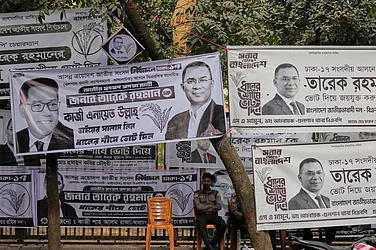The Gulf nation of Kuwait has banned the Hollywood summer blockbuster Barbie, in order to protect "public ethics and traditions". This move came shortly after Lebanon's culture minister called to ban the movie, for contradicting religious values and promoting homosexuality.
On Wednesday, a spokesman for Kuwait's Ministry of Information announced that the Warner Brothers film, which has grossed over $1 billion so far would be banned in the country, according to the KUNA news agency. He said the film "promulgates ideas and beliefs that are alien to Kuwaiti society and public order”. With this, Kuwait joined the growing list of Middle Eastern nations that have taken up issues with the top ticket-selling movie of this summer, a move that started with Lebanon.
Culture minister of Lebanon, Mohamed Mortada in his statement, said the film was found to “promote homosexuality and sexual transformation” and “contradicts values of faith and morality” by diminishing the importance of the family unit. Mortada asked Lebanon's general security agency, which is responsible for censorship, to take the necessary action required.
Mortada is backed by the powerful armed group, Hezbollah. Hezbollah leader Hassan Nasrallah used the movie to ramp up his anti-LGBTQIA+ rhetoric, claiming that it posed an "imminent danger". Following Mortada's request, and set against the backdrop of the powerful growing anti-LGBTQIA+ Hezbollah-led campaign, Lebanon's interior ministry asked its censorship committee to review the film. The film was due to screen in Lebanon's cinemas from August 31st.
Kuwait, which had recently banned the Australian horror film, "Talk to Me" on similar grounds was much quicker to act. That Lebanon was the first to lead the calls for bans was surprising, given the country was also the first Arab nation to hold a gay pride week in 2017, and is viewed as a safe haven for the community in the conservative Middle East. Yet, with powerful movements rising to "preserve family units" and conservative sentiments, the country has reversed its broadly liberal stand so far.


























